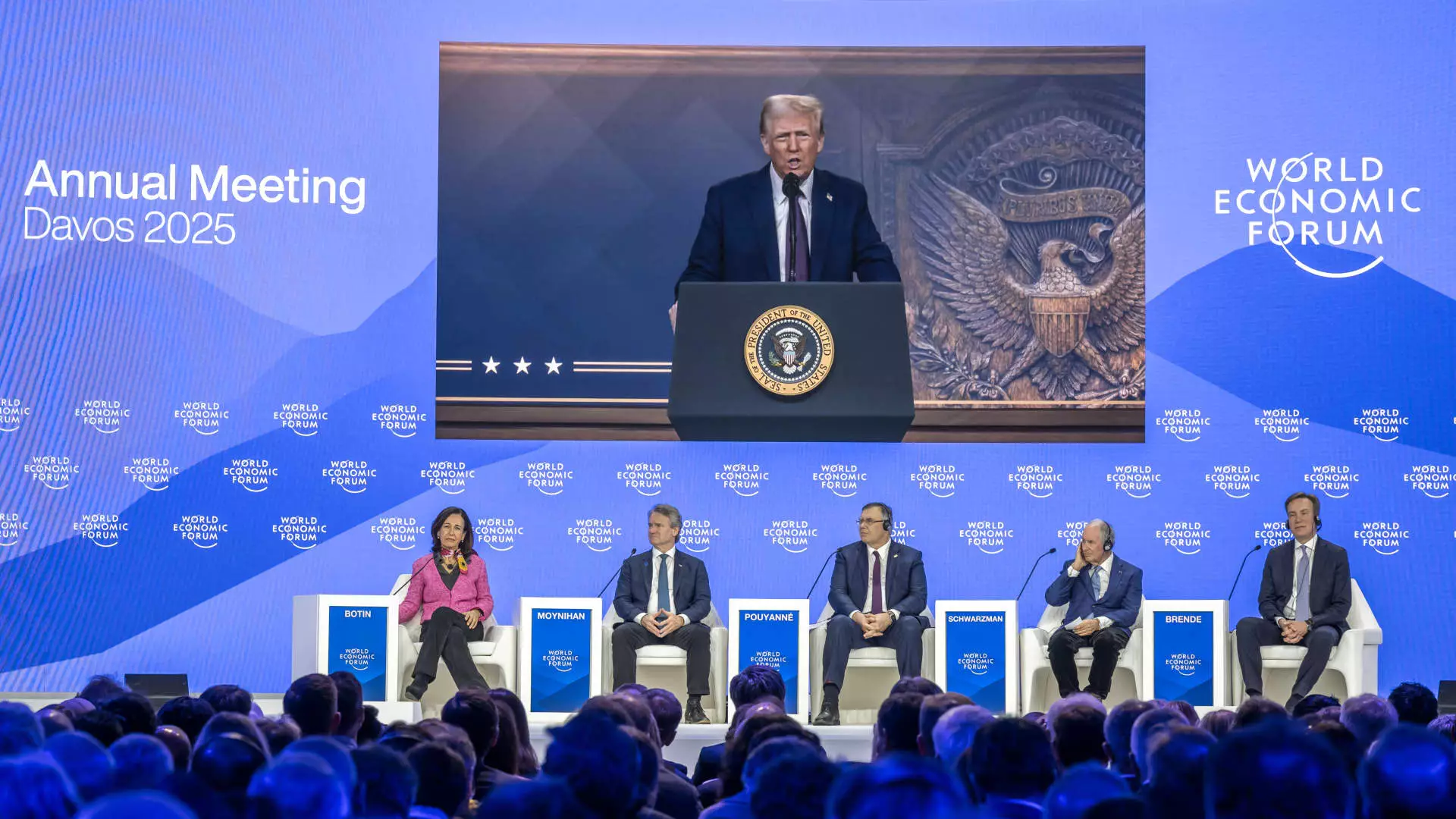Donald Trump’s recent remarks at the World Economic Forum in Davos have reignited a debate about the perceived treatment of conservative clients by major American banks. During a question-and-answer session, Trump specifically targeted Bank of America and JPMorgan Chase, alleging that the institutions have been discriminatory toward conservatives. This confrontation not only underscores the ongoing tensions between Trump’s political narrative and corporate America but also raises questions about the larger implications of political ideology on financial services.
In his address, Trump expressed frustration with the banking industry’s supposed refusal to serve conservatives, prompting a broad defense from the banks involved. He accused the CEOs, Brian Moynihan of Bank of America and Jamie Dimon of JPMorgan Chase, of excluding conservatives from banking services, a claim that both banks categorically denied. According to Bank of America, there is no political litmus test for their clients; they serve over 70 million customers without bias. Similarly, JPMorgan emphasized their compliance with the law in all client dealings, rejecting any notion of accounts being closed for political reasons.
Trump’s statements could be interpreted as an attempt to galvanize his base ahead of the 2024 election, utilizing banks as a convenient symbol of larger societal grievances. His fixation on these institutions suggests a strategic effort to frame corporate America as hostile to conservative values, a narrative that resonates with many of his supporters who believe in a general bias against right-leaning ideologies.
The backdrop of Trump’s accusations is rooted in the aftermath of the 2008 financial crisis. Following the crisis, regulators instituted stricter measures to mitigate risk in banking practices, particularly against industries viewed as high-risk for issues such as money laundering. This led to a systemic effort within banks to evaluate the legitimacy and purpose of clients’ accounts more rigorously. By labeling certain sectors—like payday lenders and firearms dealers—as risky clientele, banks have periodically closed accounts, often without extensive communicated justifications. This reality creates fertile ground for accusations that banks are acting based on political or ideological grounds, even when the closures arise from compliance with regulatory frameworks.
The narrative of discrimination has gained traction among some conservative figures, including Marc Andreessen, a venture capitalist closely tied to the tech industry and Trump. Andreessen’s claims that numerous startups have been “de-banked” due to political affiliations lend credibility to the notion that the banking sector may be, intentionally or not, marginalizing certain ideologies. However, the facts regarding individual cases often provide more complexity than the overarching narrative allows.
In response to the claims made against them, banks like Bank of America have taken a stand, emphasizing their commitment to serve a broad and diverse clientele, including various religious and political affiliations. In an official correspondence to Kansas Attorney General Kris Kobach—who previously accused Bank of America of closing accounts of religious groups—the bank clarified that account cancellations occur strictly based on business compliance or account use concerns, not ideologically motivated discrimination.
Such clarifications are essential for financial institutions seeking to maintain public trust and investor confidence amid often tumultuous political climates. However, these statements also highlight a significant challenge faced by financial institutions: navigating the complex intersection between regulatory compliance, customer satisfaction, and political pressures.
The accusations brought forth by Trump denote more than just a contentious exchange between a political figure and banking executives; they are indicative of a critical intersection between finance and politics in today’s America. Trump, who perceives the banking industry as a potential ally due to its ability to shape economic policy, seeks to reshape the narrative surrounding banks as agents of power wielded against conservative influencers.
Conversely, banks are pressured to adapt to a changing political environment while remaining true to their regulatory obligations and corporate governance. As they navigate this tricky landscape, the implications for businesses, investors, and consumers alike become increasingly significant.
Both Bank of America and JPMorgan Chase reported stock increases following Trump’s comments, possibly indicating that investors remain unfazed by the political discourse. Nevertheless, the acknowledgment of these political narratives and their influence on banking practices will be critical as we approach the election season. The larger conversation surrounding banking, political ideology, and consumer access needs to be navigated sensitively, as it holds profound implications for both the financial sector and the electorate at large.


Leave a Reply